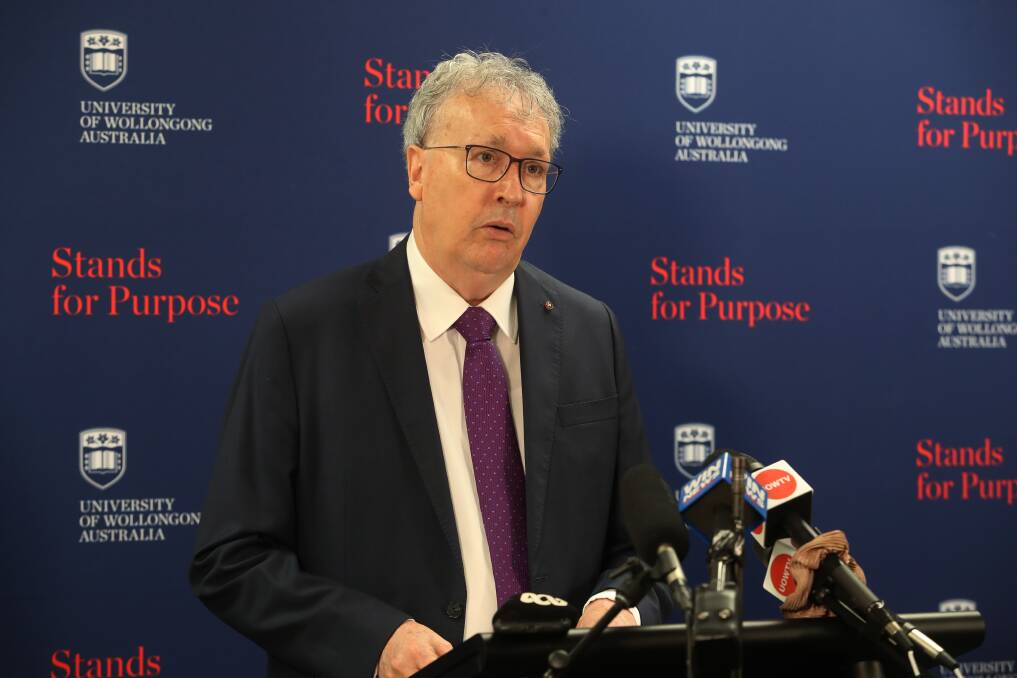
A major faculty restructure which could have an impact on hundreds of jobs is to be explained to staff at the University of Wollongong on Thursday.
Subscribe now for unlimited access.
or signup to continue reading
The move, which the Mercury understands had been approved at an extraordinary meeting of the University Council on Monday last week, would result in very significant job losses, largely non-academic professional staff.
The Faculty of Law, Humanities and the Arts would cease to exist, with its component schools being absorbed into other areas.
The move will cut costs after the financial king-hit delivered by the coronavirus lockdown to universities heavily reliant on international students.
Read more: University faces $90 million shortfall
Staff had largely been kept in the dark but were set to be told the details at a series of meetings on Thursday.
The university had planned to make the announcement on Thursday but after questions from the Mercury, rushed out a media statement on Wednesday afternoon.
It ignored our questions about how many jobs would be lost.
Law and ANCORS (the Australian National Centre for Ocean Resources and Security, which focuses on maritime law and security) would be merged into the new faculty of Business and Law (BAL), to be headed by Professor Colin Picker.
The schools of Arts, English and Media, Liberal Arts, and Humanities and Social Inquiry, will be merged into the faculty of Social Sciences to form the new faculty of Humanities and Social Sciences (HASS), to be headed by Professor Glenn Salkeld.
It appears the impact on academic jobs would be less than other professional faculty staff - administration, technical, marketing and international positions. But these job losses are likely to be significant, with some estimates above 80.
UOW Vice-Chancellor Paul Wellings is set to unveil other significant changes next week at a "town hall" meeting (online).
Professor Wellings said the faculty restructure to be revealed on Thursday was part of preparation for "a very different higher education sector" post-COVID-19.
The pandemic had brought "permanent, far-reaching changes" which emphasised the need for universities to offer "value for money", he said.

